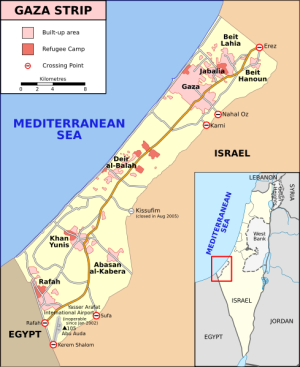 by James Petras
by James Petras
8 February 2011
Article abridged
US foreign policy has a long history of installing, financing, arming and backing dictatorial regimes which back its imperial policies and interests as long as they retain control over their people.
In the past, Republican and Democratic presidents worked closely with the Trujillo dictatorship in the Dominican Republic; installed the autocratic Diem regime in pre-revolutionary Vietnam in the 1950s; collaborated with two generations of Somoza family terror regimes in Nicaragua; financed and promoted the military coup in Cuba 1952, Brazil 1964, Chile in 1973 and Argentina in 1976.
When popular upheavals challenged these US backed dictatorships, and a social as well as political revolution appeared likely to succeed, Washington responded with a three track policy:
- Publically criticizing human rights violations and advocating democratic reforms.
- Privately signaling continued support to the ruler.
- Seeking an elite alternative which could substitute for the incumbent and preserve the state apparatus and support US imperial interests.
For the US there are no strategic relationships, only permanent imperial interests, namely preservation of the client state. The dictatorships assume that their relationships with Washington is strategic: hence their shock when they are sacrificed to save the state apparatus.
Fearing revolution, Washington has had reluctant client despots, unwilling to move on, assassinated (Trujillo and Diem). Some are provided sanctuaries abroad (Somoza, Batista). Others are pressured into power-sharing (Pinochet) or appointed as visiting scholars to Harvard, Georgetown or some other “prestigious” academic posting.
The Washington calculus on when to reshuffle the regime is based on an estimate of the capacity of the dictator to weather the political uprising, the strength and loyalty of the armed forces and the availability of a pliable replacement.
The risk of waiting too long, of sticking with the dictator, is that the uprising radicalizes: the ensuing change sweeps away both the regime and the state apparatus, turning a political uprising into a social revolution. Just such a ‘miscalculation’ occurred in 1959 in the run-up to the Cuban revolution, when Washing stood by Batista and was not able to present a viable pro-US alternative coalition linked to the old state apparatus.
A similar miscalculation occurred in Nicaragua when president Carter, while criticizing Somoza, stood passively by as the regime was overthrown and the revolutionary forces destroyed the US and Israeli trained military, secret police and intelligence apparatus, and went on to nationalize US property and develop an independent foreign policy.
Washington moved with greater initiative in Latin America in the 1980s. It promoted negotiated electoral transitions which replaced dictators with pliable neo-liberal electoral politicians, who pledged to preserve the existing state apparatus, defend privileged foreign and domestic elites and back US regional and international policies.
Obama has been extremely hesitant to oust Mubarak for several reasons. The White House has many clients around the world – including Honduras, Mexico, Indonesia, Jordan and Algeria – who believe they have a strategic relationship with Washington and would lose confidence in their future if Mubarak was dumped.
And highly influential pro-Israel organizations in the US (AIPAC, the Presidents of the Major American Jewish Organizations) and their army of scribes have mobilized congressional leaders to pressure the White House to continue backing Mubarak, as Israel is the prime beneficiary of a dictator who is at the throat of Egyptians (and Palestinians).
As a result the Obama regime has moved slowly, under fear and pressure of the growing Egyptian popular movement. It searches for an alternative political formula that removes Mubarak, retains and strengthens the political power of the state apparatus and incorporates a civilian electoral alternative as a means of demobilizing the vast popular movement.
The major obstacle to ousting Mubarak is that a major sector of the state apparatus, especially the 325,000 Central Security Forces and the 60,000 National Guard, are directly under the Interior Ministry and Mubarak. And top generals in the army (468,500 members) have buttressed Mubarak for 30 years and been enriched by their control over lucrative companies. The supreme commander of the Egyptian military is a longtime client of the US and a willing collaborator with Israel.
Obama is resolutely in favor of collaborating with and ensuring the preservation of these coercive bodies. But he also needs to convince them to replace Mubarak with a new regime that can defuse the mass movement. Obama will do everything necessary to retain the cohesion of the state and avoid any splits which might lead to a movement-soldier alliance that converts the uprising into a revolution.
Washington has opened talks with the most conservative liberal and clerical sectors of the anti-Mubarak movement. At first it tried to convince them to negotiate with Mubarak – a dead end position which was rejected by all sectors of the opposition, top and bottom.
Then Obama tried to sell a phony “promise” from Mubarak that he would not run in the elections, nine months later. The movement and its leaders rejected that proposal also.
So Obama raised the rhetoric for “immediate changes” but without any substantive measures backing it up. To convince Obama of his continued power base, Mubarak sent his formidable secret police to violently seize the streets from the movement. A test of strength: the army stood by, while the assault raised the ante of a civil war, with radical consequences. Washington and the EU pressured the Mubarak regime to back off – for now.
The anti-dictatorial moment is only the first phase of a prolonged struggle toward definitive emancipation not only in Egypt but throughout the Arab world. The outcome depends on the degree to which the masses develop their own independent organization and leaders.
James Petras is the author of more than 62 books published in 29 languages, and over 600 articles in professional journals, including the American Sociological Review, British Journal of Sociology, Social Research, and Journal of Peasant Studies. He has published over 2000 articles in nonprofessional journals such as the New York Times, the Guardian, the Nation, Christian Science Monitor, Foreign Policy, New Left Review, Partisan Review, TempsModerne, Le Monde Diplomatique, and his commentary is widely carried on the internet.







